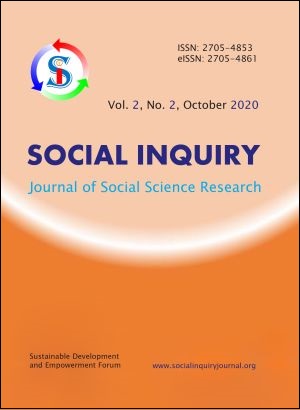Gender Assessment of Teacher Education Curricula: A Case Study of Kathmandu University, School of Education
DOI:
https://doi.org/10.3126/sijssr.v2i2.33044Keywords:
Gender Sensitivity, Curriculum Design, Gender Assessment, Curriculum Analysis, Gender InclusionAbstract
Gender issues are prevalent in every field, and its intersection in the teacher education programme is equally important. To explore gender inclusion in teacher education, this paper analyses the curriculum and teaching/learning materials of two master’s courses, namely Sustainable Development and Mathematics Education, taught at Kathmandu University, School of Education, Nepal. The course syllabus and lecture presentations were analysed using Barbara Hey’s (2010) framework to explore the status of gender inclusion. Tutors’ interviews are also added to cross-check the content analysis of the courses. The study found out that the gender mainstreaming in the curriculum design and implementing them in the classroom from the gender-balanced teachers remained a major drawback. The university has provided training to the teachers and revised its programmes timely, but the sampled courses had less gender integration. So, realizing the teacher may treat the subject from his/her gendered position, the delivery of the content is also equally important. There are no sexist languages and images used. However, some illustrations indicated towards reinforcing gender bias. The gender assessment has been taken from a holistic perspective, so the content delivery is equally emphasised. A gender-sensitive teacher is the utmost necessary to be responsible for avoiding sexist languages, valuing the students of all gender, and bringing gender discourses wherever is relevant and possible in the subject even if it is not in the course units exclusively. Trainings are instrumental in changing teachers' gender-biased mindset, and gender-friendly provisions can be crucial to achieving gender-related outcomes through gender-inclusive educational programmes.




